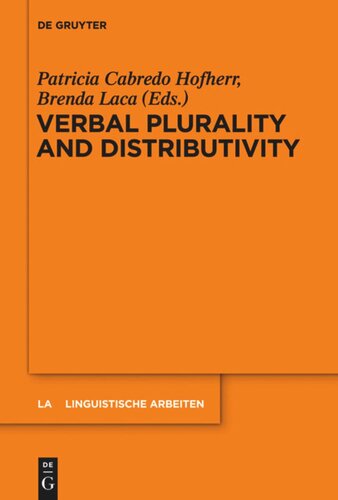

Most ebook files are in PDF format, so you can easily read them using various software such as Foxit Reader or directly on the Google Chrome browser.
Some ebook files are released by publishers in other formats such as .awz, .mobi, .epub, .fb2, etc. You may need to install specific software to read these formats on mobile/PC, such as Calibre.
Please read the tutorial at this link: https://ebookbell.com/faq
We offer FREE conversion to the popular formats you request; however, this may take some time. Therefore, right after payment, please email us, and we will try to provide the service as quickly as possible.
For some exceptional file formats or broken links (if any), please refrain from opening any disputes. Instead, email us first, and we will try to assist within a maximum of 6 hours.
EbookBell Team

4.1
90 reviewsThis volume brings together novel analyses of verbal plurality and distributivity. The contributions draw on a wide range of new empirical data from languages as diverse as Arabic, Cusco Quechua, European Portuguese, Hausa, Karitiana, Modern Hebrew and Russian. The introductory chapter gives an overview of the central issues that underlie much recent research on the semantics of event plurality. The papers on verbal plurality explore the interaction between verbal plurality and plural arguments in Arabic and European Portuguese, the semantics of additive particles in Modern Hebrew, the semantics of a range of pluractional markers in Cusco Quechua and the morphological variability of pluractional markers cross-linguistically. The papers on distributivity examine the syntax and semantics of reduplicated numerals in Karitiana and adnominal distributive markers. This volume will be of interest to researchers and students in syntax, formal semantics, and language typology.